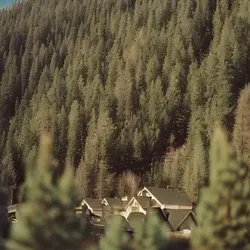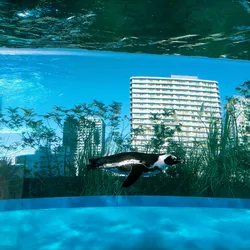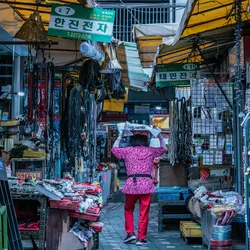
Off-grid living is a lifestyle that involves living independently of the traditional electricity, water, and sewage systems. It has gained popularity in recent years as people seek a simpler and more self-sufficient way of life. However, living off the grid is not as simple and idyllic as some may think.
While off-grid living offers a lot of benefits, such as lower bills and a closer connection to nature, there are also significant downsides that must be taken into consideration. The lack of electricity and running water can be a major challenge, especially during extreme weather conditions. Heating and cooling can also be a major concern, as off-grid homes often rely on alternative sources such as wood stoves or solar panels.
In addition, the cost of setting up an off-grid home can be extremely high, with expenses ranging from solar panels and batteries to water pumps and generators. Maintenance and repairs can also be costly, as most off-grid homes are located in remote areas with limited access to professional services.
Moreover, living off the grid often means living far away from the conveniences of modern society, such as supermarkets, hospitals, and other essential services. This can lead to feelings of isolation and loneliness, especially for those who are used to living in more densely populated areas.
Overall, while off-grid living can be a fulfilling and self-sufficient lifestyle for some, it’s important to understand the challenges and drawbacks that come with it. Before making the decision to go off-grid, it’s essential to carefully weigh the pros and cons and be prepared for the difficulties that may arise.
Simplified Story:
Summary:
Living off the grid means living without relying on traditional power, water, and sewage systems. This lifestyle is becoming more popular, but it has its own difficulties.
Off-grid living has its benefits, such as lower bills and closer connections to nature, but it also has downsides. For example, it can be hard to have electricity and running water during bad weather. People who live off the grid often have to rely on alternative sources for heat and coolness.
Another problem is the cost of setting up an off-grid home. You may need to buy solar panels, batteries, water pumps, and generators. Keeping an off-grid home in good condition can be expensive too, especially if it’s in a remote area without easy access to professional help.
Living off the grid can also be lonely. People who live this way are far from shops, hospitals, and other important places. If you’re used to living in a crowded area, it can be hard to adjust to a more isolated lifestyle.
In conclusion, it’s important to think about the pros and cons of off-grid living before making a decision. This lifestyle can be fulfilling and self-sufficient, but it’s also challenging and can be lonely. You need to be prepared for the difficulties that may come with it.
Questions:
What is off-grid living?
What are the benefits of off-grid living?
What are the downsides of off-grid living?
What are the costs of setting up an off-grid home?
Can living off the grid be lonely?
Do you think the benefits of off-grid living outweigh the downsides?
Is off-grid living a good choice for everyone or only for a certain type of person?
Vocabulary:
off-grid: not connected to or relying on traditional power, water, and sewage systems
lifestyle: a particular way of living
difficulties: problems or challenges
alternative: something that can be used instead of something else
fulfillment: the state of being satisfied and happy
self-sufficient: able to provide for oneself without help from others
isolated: separate and alone
adjustment: the process of becoming accustomed to something new




